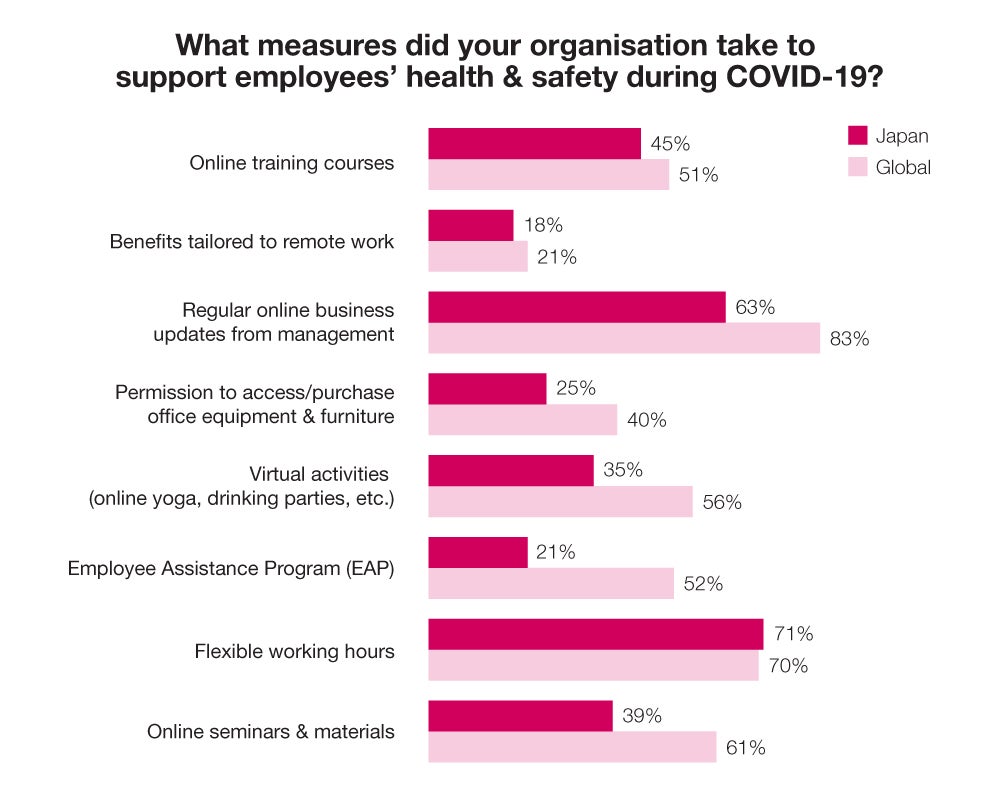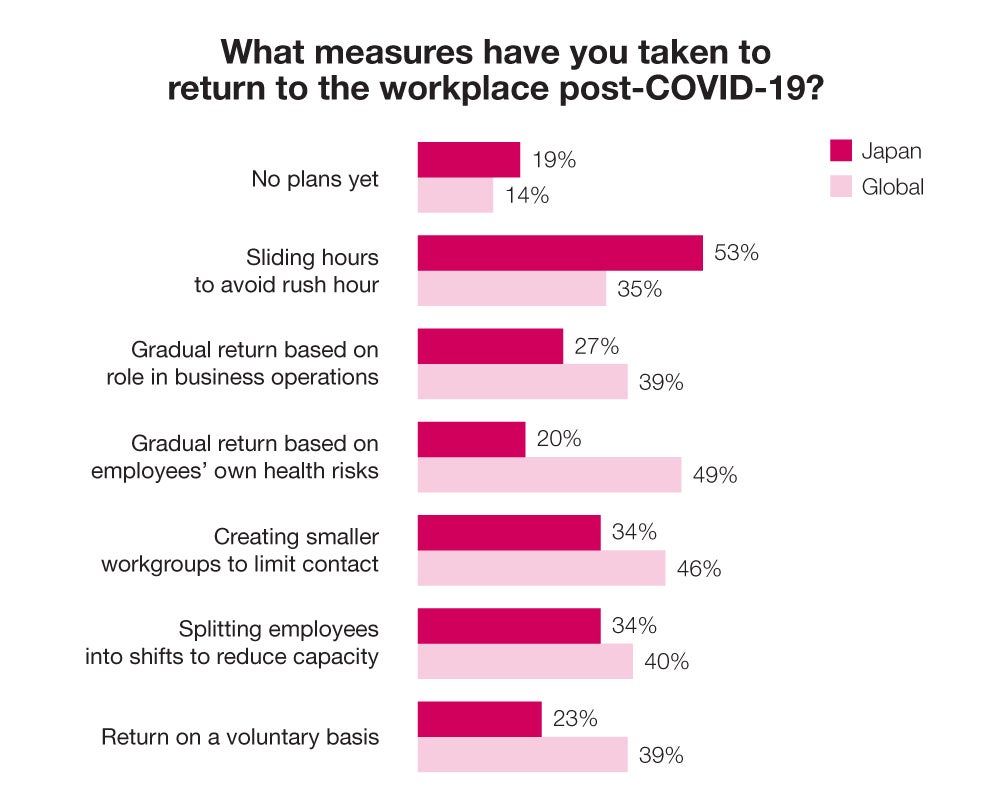BCP measures to protect employees against COVID-19; Japan emphasizes security, overseas focused on strengthening engagement
Responses from 2,152 companies globally, including 115 in Japan
On June 23, specialist professional recruitment firm Robert Walters Japan announced the survey results on BCP measures to protect employees’ health against COVID-19. A total of 2,152 companies from 31 countries (including 151 domestic and foreign-affiliated companies in Japan) participated in the survey.
Physical and mental health support: flexible working hours, regular communication from management
In response to a question regarding measures put in place to support the health, safety and wellbeing employees, 71% of companies said they allowed flexible working hours. 63% answered that they held regular town hall meetings online to help keep employees connected and informed and 45% offered online training courses either from internal or external providers.
Virtual activities and enhancement of EAP in companies abroad
In contrast, online town hall meetings were held at more than 80% of companies abroad. Right after flexible working hours, organisations around the world offered online seminars as well as virtual activities such as online yoga and team coffee catchups for their employees.
Post-COVID-19: Implementing sliding hours and shifts, companies abroad focus on employee autonomy
When companies were asked what strategies they were considering in their post-COVID-19 transition back to the workplace, allowing sliding hours to avoid busy commuting periods was the most popular answer (53%). Splitting employees into shifts to reduce workplace capacity (34%) and creating smaller workgroups to limit workplace contact (34%) also ranked high. Compared to Japan, many companies globally plan to gradually shift back to the workplace based on employees’ own health concerns related to COVID-19 (49%). Other popular strategies include allowing employees back to the workplace based on how critical their role to the business is (39%) and giving employees the choice of coming to the workplace (39%).
Companies in Japan emphasize security while companies overseas focus on strengthening engagement
Based on the survey results, Jeremy Sampson, Managing Director at Robert Walters Japan, commented on the differences between Japan and the rest of the world. “Cultures and traditions all over the world vary. Because circumstances and customs in commuting methods differ from place to place, we see significant differences in the survey results. In Japan, companies strive to create a sense of security and workability for their employees by establishing clear guidelines on health and safety such as sliding hours, shift work, and flexible hours. On the other hand, companies around the globe focus on maintaining employee engagement through measures such as providing external information, enhancing internal activities and EAPs to foster a sense of unity while respecting autonomy.”
Survey period: May 11 to May 25, 2020
Target: Companies in 31 countries where Robert Walters Group operates n=2,152 companies (including domestic and foreign-affiliated companies in Japan n=115)
Related content
View allTOKYO, JAPAN - Specialist recruitment firm Robert Walters Japan unveils key insights into the experiences and expectations of LGBTQ+ individuals, diversity and inclusivity in the Japanese workplace through its latest survey*. The Importance of Diversity and Inclusivity The survey asked respondents t
Read MoreTOKYO - Specialist professional recruitment firm Robert Walters announced trends in the hiring of foreign national candidates on April 10. In recent years, as the domestic workforce has been shrinking, companies have been focusing on boosting diversity in their hiring process. In this release, we ta
Read MoreOSAKA - Specialist professional recruitment firm Robert Walters Japan is pleased to announce the relocation of its Osaka office to Northgate Building Office Tower, next to JR Osaka station, from 1 April 2024. The Osaka office is a key hub serving clients and candidates in central and western Japan s
Read More

